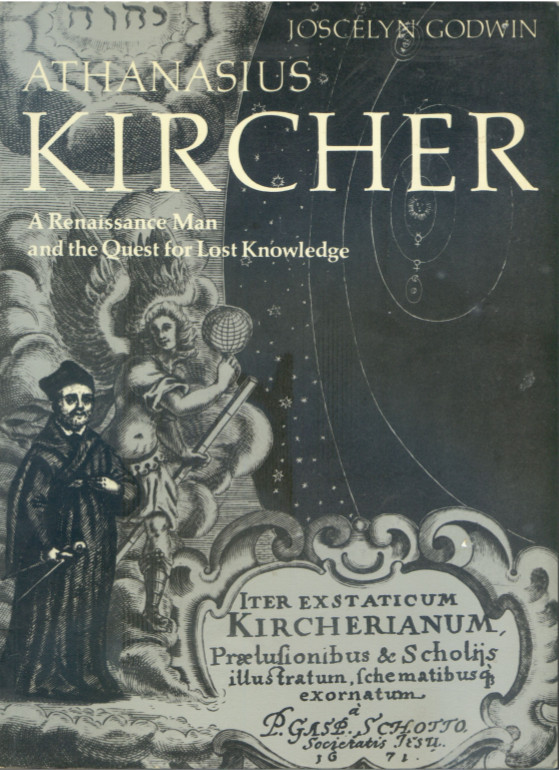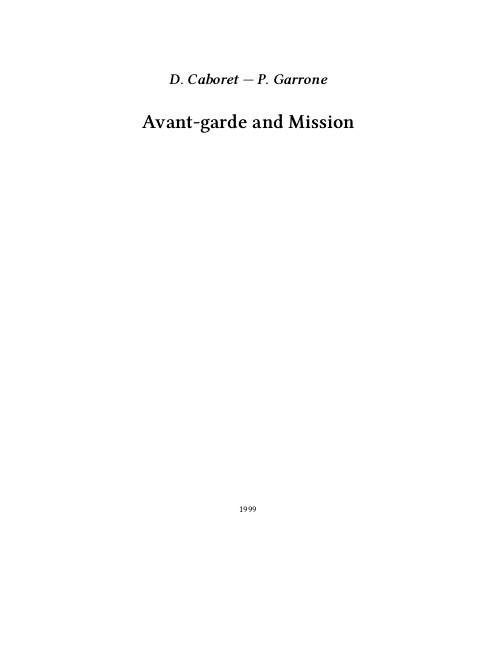Joscelyn Godwin: Athanasius Kircher: A Renaissance Man and the Quest for Lost Knowledge (1979)
Filed under book | Tags: · 1600s, archaeology, history of science, history of technology, kabbalah, linguistics, magnetism, music, mysticism, optics, religion, science, technology

Athanasius Kircher (1602-80) stands out as one of the last all-encompassing minds, living in the age of Descartes and Newton, but expounding his knowledge in the light of a unified, spiritual world-view. For this true Renaissance man, the whole cosmos was a glorious theophany waiting to be explored.
Kircher was a Jesuit and an archeologist, a phenomenal linguist and an avid collector of scientific instruments and geographical exploration. He probed the secrets of the subterranean world, deciphered archaic languages, experimented with alchemy and music-therapy, optics and magnetism.
Egyptian mystery wisdom, Greek, Cabbalistic and Christian philosophy met on common ground in Kircher’s work; his sumptuous, encyclopaedic volumes were revered throughout Europe. His gigantic oeuvre is approached here through striking engravings – most of them reprinted for the first time – together with annotations and an introduction to Kircher’s life and work.
Publisher Thames & Hudson, 1979
Art and Imagination series
ISBN 0500810222, 9780500810224
96 pages
PDF (121 MB, no OCR)
Comment (0)D Caboret, P Garrone: Avant-garde and Mission: Tiqqunery (1999) [French/English]
Filed under pamphlet | Tags: · capitalism, kabbalah, nihilism, philosophy, politics, theory

A critical study guide for readers of Tiqqun magazine.
“Addressed in 1999 to a small group of persons, the following text was intended to describe in general the philosophical and religious affiliations that the members of the magazine Tiqqun associated themselves with either explicitly or implicitly.” (from the introduction)
Publisher Friends of LHOOQ, Paris
Second edition, 2002
PDF [French]
PDF [English]
View online (HTML) [English]
Florian Cramer: Exe.cut(up)able statements: Poetische Kalküle und Phantasmen des selbstausführenden Texts (2011) [German]
Filed under book | Tags: · aesthetics, algorithm, avant-garde, code, code poetry, experimental literature, history of literature, information aesthetics, kabbalah, literature, net art, poetry, software, text, theory

“From the antiquity to today, there has been poetry that literally performs computations, processing its own letters. Prototyped by magic and Pythagorean mathematical aesthetics, it encompasses such diverse forms as kabbalist and Lullist language combinatorics, word permutation poetry, ludistic poetry, computational text collage, aleatoric, stochastic and recursive texts, Oulipian constraints, computer-generative literature, poetry in programming languages, and codeworks. Just like visual and sound poetry poetize the graphetic and phonetic dimensions of words, these writings show that computation is a dimension of language. On top of that, their poetics is rife with speculative and contradictory programs: often one and the same text form is at once being instrumentalized for total art and anti-art, mysticism and technicism, order and chaos. This has resulted in a fantastic literature whose speculative imagination manifests itself in the arrangement of letters rather than the semantics of the text. The book includes close readings of a 17th century sonnet (Quirinus Kuhlmann’s “XLI. Libes-kuss”), a 20th century musical composition (Alvin Lucier’s “I am sitting in a room”) and a 21st century net.art codework (mez breeze’s “_Viro.Logic Condition][ing][ 1.1_”), and discusses limitations of existing literary and media theory for criticism of these works.
A shorter, less scholarly English-language mutant of this book has been electronically published in 2005 as Words Made Flesh: Code, Culture, Imagination.”
Publisher Wilhelm Fink Verlag, October 2011
343 pages
Note: the book has just become free for Open Access publishing and is offered here for download in its manuscript version, licensed under Creative Commons Attribution Unported 3.0.
Comment (0)
